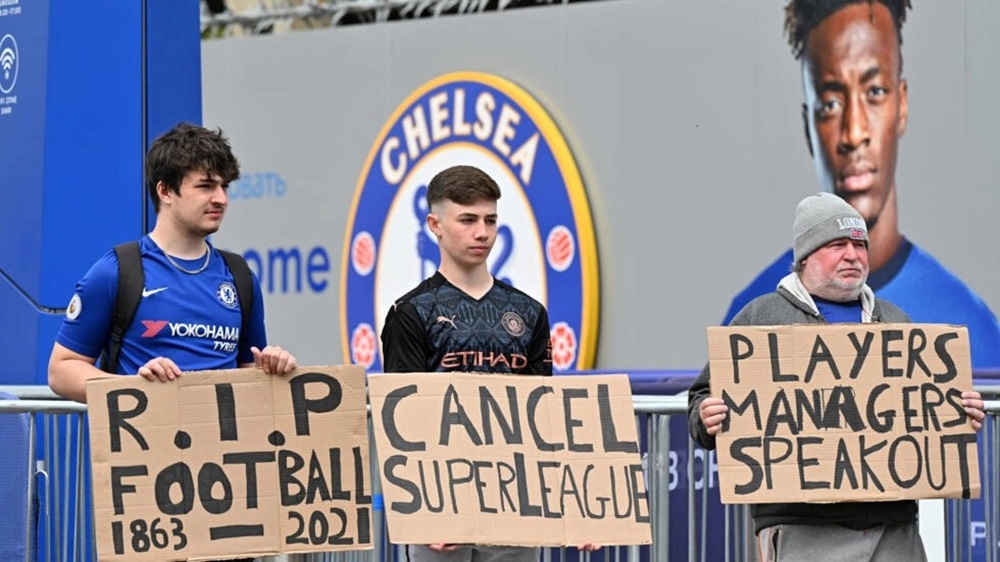In a groundbreaking ruling on Thursday, the European Court of Justice declared that UEFA and FIFA contravened EU law by obstructing the establishment of a Super League, potentially heralding a transformation in the governance of football.
The decision by the EU’s highest court follows the threat posed by European soccer clubs to form a breakaway league, which sparked widespread outrage among passionate fans. UEFA had issued sanctions as a deterrent, leading to the withdrawal of nine clubs from the proposed project.
According to the ruling, FIFA and UEFA abused their dominant position by prohibiting clubs from participating in a European Super League (ESL). However, the court did not render a verdict specifically on the ESL project itself, leaving its fate undetermined.
UEFA, which has organized pan-European competitions for nearly seven decades, perceives the ESL as a significant threat to the highly lucrative Champions League, in which teams qualify based on merit.
Real Madrid, Barcelona, Juventus, and nine other prominent European clubs had announced the formation of the closed ESL in April 2021. However, the venture collapsed within 48 hours due to widespread protests from fans, governments, and players, compelling Manchester United, Liverpool, Manchester City, Chelsea, Tottenham Hotspur, Arsenal, AC Milan, Inter Milan, and Atletico Madrid to withdraw.
Sports development company A22, established to assist in creating the ESL, argued that UEFA and FIFA held a monopoly position that violated the European Union’s Competition and Free Movement Law.
“We have won the right to compete. The UEFA-monopoly is over. Football is free,” declared A22 CEO Bernd Reichart.
Reichart added, “Clubs are now free from the threat of sanction and free to determine their own futures,” emphasizing the significance of the court’s decision.
UEFA responded by clarifying that the ruling did not signify an endorsement or validation of the Super League. The organization stated that it had addressed a deficiency highlighted within its own framework and expressed confidence in the compliance of its new rules with relevant European laws and regulations.
FIFA has yet to provide a response to the ruling.
The court’s judgment emphasized that FIFA and UEFA must adhere to competition rules and respect freedom of movement, underscoring that their regulations pertaining to approval, control, and sanctions constituted unwarranted constraints on the freedom to provide services.
The ruling does not imply automatic approval for a competition like the Super League project. The court refrained from offering a verdict on the specific project, focusing instead on FIFA and UEFA’s regulations in general.
Following the collapse of the ESL plan, only three clubs persisted with their involvement, but Juventus withdrew earlier this year after the resignation of its former chairman, Andrea Agnelli, a key figure behind the project, and its board in November 2022.
Real Madrid and Barcelona remained determined to proceed with the competition, prompting the ESL to bring their case before a Spanish court, which sought guidance from the European Court in Luxembourg. The Spanish court will now assess the ruling and apply its responses to the facts of the case.
LaLiga, the top professional league in Spain, stated, “Today, more than ever, we reiterate that the ‘Super League’ is a selfish and elitist model.”
Additionally, Belgian soccer club Royal Antwerp challenged UEFA’s rules on homegrown players, and the court determined that these rules could be contrary to EU law.
Simultaneously, the International Skating Union failed in its attempt to overturn an EU antitrust order that prohibited penalizing speed skaters for participating in new, lucrative events.


